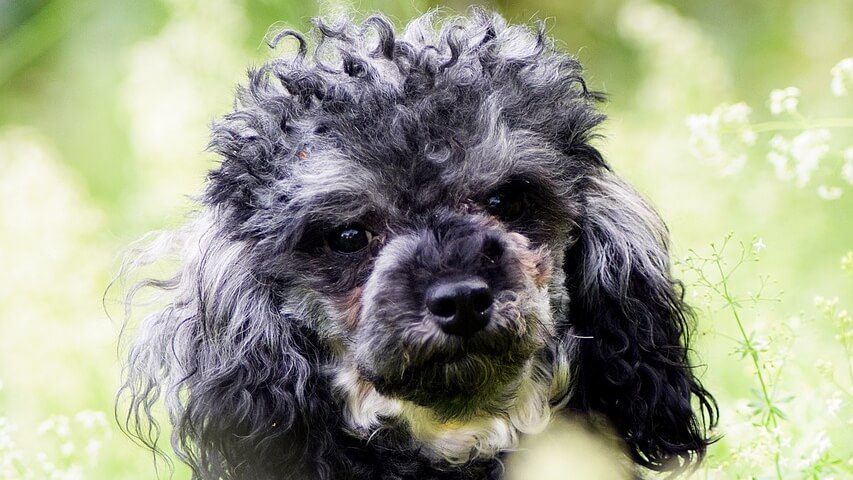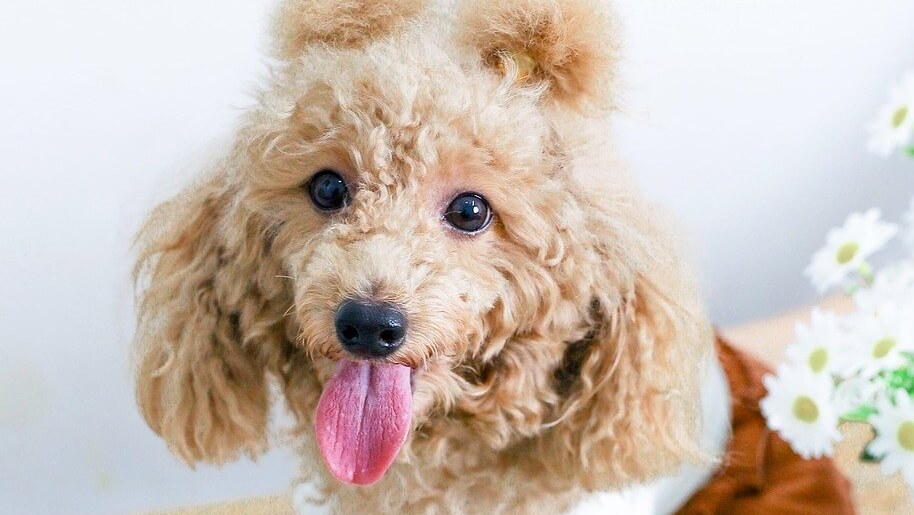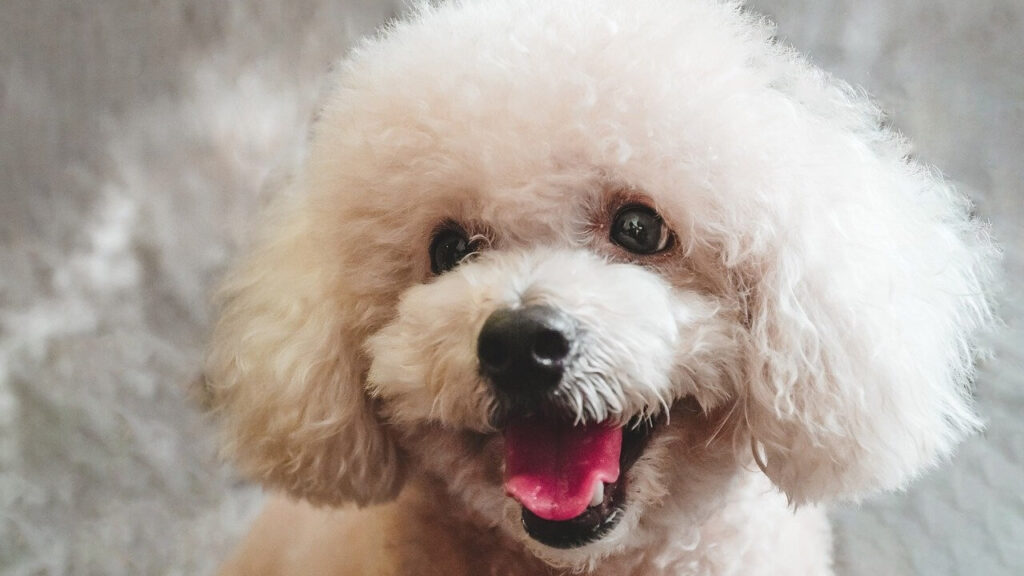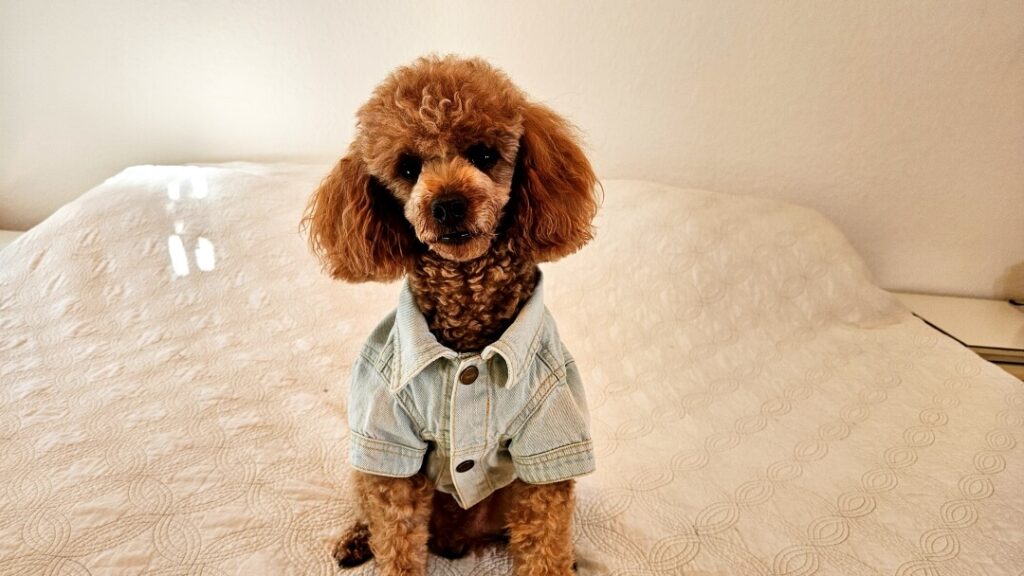Introduction to Ear Infections in Miniature Poodles
Did you know that ear infections are one of the most common health issues in Miniature Poodles? If you’re a proud owner of one of these adorable curly-haired canines, it’s crucial to be aware of this prevalent problem. Frequent ear infections can cause discomfort and even lead to more severe health issues if left untreated.
In this guide, we’ll explore why Miniature Poodles are particularly susceptible to ear infections, how you can spot them early, and, most importantly, what you can do to prevent and treat them.
Understanding the Anatomy of a Dog’s Ear
Why Poodles Are More Susceptible
The unique anatomy of a dog’s ear plays a significant role in how prone they are to ear infections. Miniature Poodles, with their floppy ears and tight curls, are particularly vulnerable. Their ear canals are long and have a right-angle bend, which can trap moisture and debris, creating an ideal environment for bacteria and yeast to thrive.
Additionally, the dense hair inside their ears can further impede airflow, exacerbating the problem. It’s essential for Poodle owners to understand these anatomical challenges to take effective preventive measures.

Signs and Symptoms of an Ear Infection in Poodles
Spotting the Early Warning Signs
Knowing the signs and symptoms of an ear infection can help you catch and treat the issue before it becomes severe. Here are some common indicators:
- Constant Scratching or Pawing at the Ears: If your Poodle is frequently trying to scratch its ears, it could be a sign of irritation.
- Redness and Swelling: Check the inside of your dog’s ear for any redness or swelling, which are classic symptoms of an infection.
- Unpleasant Odor: A foul smell coming from your dog’s ears is often an indicator of an ear infection.
- Discharge: Any unusual discharge, whether it’s yellow, brown, or bloody, warrants immediate attention.
Preventive Measures for Reducing the Risk of Ear Infections
Regular Cleaning and Grooming
Preventing ear infections in Miniature Poodles largely comes down to regular cleaning and grooming. Here are steps you can take:
- Trim Excess Hair: Make sure to trim the hair around and inside your Poodle’s ears to improve airflow.
- Dry Ears Thoroughly After Baths: Always dry your dog’s ears thoroughly after baths or swimming to prevent moisture buildup.
- Maintain a Regular Cleaning Schedule: Use a vet-approved ear cleaner to cleanse your dog’s ears regularly. This helps remove any debris or wax that could lead to infections.

Step-by-Step Guide on How to Clean a Miniature Poodle’s Ears
Cleaning Your Poodle’s Ears Safely
Cleaning your Miniature Poodle’s ears doesn’t have to be a daunting task. Follow this step-by-step guide for a safe and effective cleaning routine:
- Gather Supplies: You will need cotton balls or gauze, a vet-approved ear cleaning solution, and treats to reward your dog.
- Position Your Dog Comfortably: Have your Poodle sit or lay down in a comfortable position. It may help to have a second person assist if your dog is particularly wiggly.
- Apply Ear Cleaner: Gently lift your dog’s ear flap and apply the ear cleaner as per the instructions on the bottle.
- Massage the Ear: Massage the base of the ear to help dislodge any debris.
- Wipe Away Debris: Use cotton balls or gauze to wipe away any loosened debris from the ear canal.
- Reward Your Dog: Don’t forget to reward your Poodle with a treat for being cooperative!
Over-the-Counter and Prescription Treatments for Ear Infections
Treatment Options Available
When it comes to treating ear infections, there are various over-the-counter (OTC) and prescription options available:
- OTC Ear Drops: These can provide relief and are often suitable for mild infections. Look for ones with anti-inflammatory and antifungal properties.
- Prescription Medications: For more severe infections, your vet may prescribe stronger medications, including antibiotics or antifungal ear drops.
- Natural Remedies: Some natural remedies, like apple cider vinegar diluted with water, can help but should be used cautiously and under the guidance of a vet.

When to Seek Professional Help from a Veterinarian
Knowing When It’s Time to See the Vet
While some ear infections can be managed at home, others require professional veterinary care. Seek a vet’s advice if:
- The symptoms persist or worsen after a few days of treatment.
- Your dog is in significant pain or distress.
- There is a large amount of discharge or a foul odor coming from the ear.
Prompt veterinary treatment is crucial to prevent complications and ensure your Poodle’s ears are healthy.
Real-Life Testimonials and Success Stories of Poodle Owners Managing Ear Infections
Hear from Fellow Poodle Owners
Listening to the experiences of other Poodle owners can be incredibly reassuring and informative. Here are some real-life testimonials:
- Sarah from New York shares, “Regular ear cleaning has been a game-changer for Bella. We went from monthly infections to none at all!”
- John in California says, “After switching to a vet-recommended cleaner, Max’s ears have never been healthier. It’s all about finding the right products.”
- Emily from Texas adds, “Don’t ignore the signs! Early intervention saved us a lot of trouble and kept Lucy happy and healthy.”

Conclusion
The Importance of Regular Ear Care for Miniature Poodles
Taking care of your Miniature Poodle’s ears is essential for their overall health and well-being. Regular cleaning, vigilance for symptoms, and timely vet visits are key to preventing painful and potentially harmful ear infections. By following the tips and steps outlined in this guide, you can ensure your furry friend remains comfortable and infection-free.
Remember, consistent ear care is a small effort that yields significant benefits. If you have any questions or need personalized advice, don’t hesitate to consult with a veterinarian.
Join Our Community and Share Your Experience
Share Your Journey with Us
We hope you found this guide helpful. Do you have any tips or success stories about managing ear infections in Miniature Poodles? We’d love to hear from you! Join our community and share your experiences. Together, we can keep our beloved Poodles happy and healthy.

